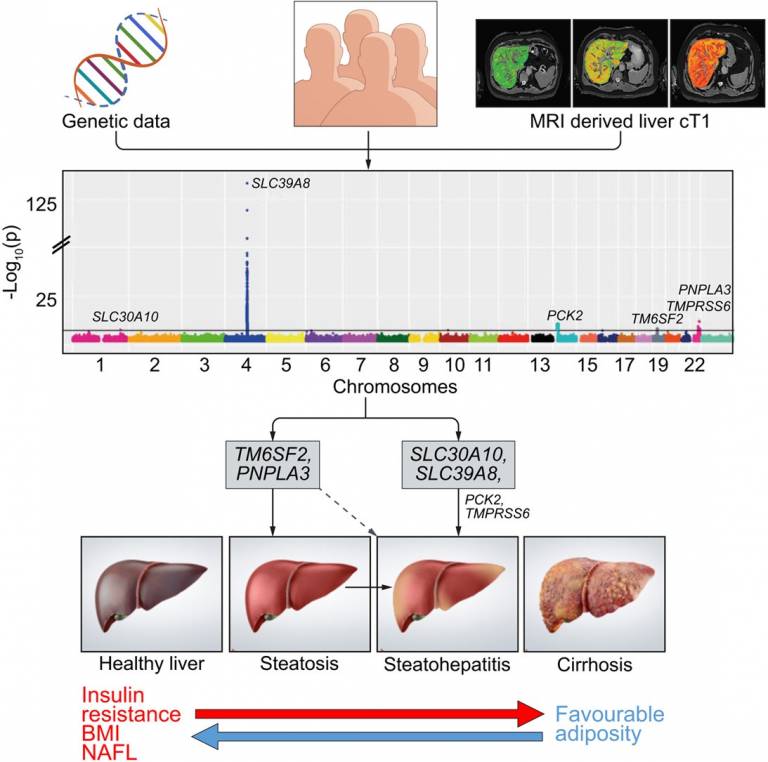Genetic studies on liver MRI data identify genes associated with liver inflammation
28 May 2020

A new study published in the Journal of Hepatology has provided insights into the pathogenesis of steatohepatitis (a type of fatty liver disease). Researchers at UCL IHI, University of Exeter, Perspectum Diagnostics, together with leading academics from Oxford University and University of Westminster performed a genetic-wide association study to estimate levels of liver inflammation and scarring based on magnetic resonance imaging of 14,440 UK Biobank participants, and identified variations in 6 genes associated with levels of liver inflammation and scarring. Participants with variations in 4 of these genes also had higher levels of markers of liver cell injury in blood samples, further validating their role in liver health. Two identified genes are involved in the transport of metal ions in our body. Further investigation of these variations may lead to better detection, assessment, and/or treatment of liver inflammation and scarring.
Dr. Constantinos Parisinos, (Institute of Health Informatics, UCL), the lead author of the study, said: “Availability of a unique resource such as UK Biobank has provided us with an unparalleled opportunity to study liver inflammation, which is one-step before liver cirrhosis, using genetic and MRI data of 14,440 participants. Our study provides genetic insights into mechanisms underlying fibro-inflammatory liver disease and may point to future drug targets. We further showed that obesity increases inflammation and scarring of the liver but the genetic mechanism that enables the storage of the extra fat in a safe place, under the skin, protects from the adverse effects of obesity on the liver. Our genetic study also provides evidence that addressing weight gain and insulin resistance are useful strategies in the prevention of steatohepatitis.”
 Close
Close

